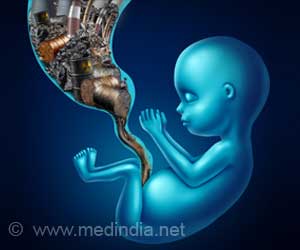In the past two years, COVID-19 has provoked anxiety throughout the world for people worried they and their loved ones would get the virus and suffer tragic consequences.
Two new studies in Annals of Allergy, Asthma and Immunology, the scientific journal of the American College of Allergy, Asthma and Immunology (ACAAI), showed the different effects of COVID-19 on anxiety.
Researchers gathered 873 online surveys from adults diagnosed with asthma to gauge their anxiety and asthma control during the pandemic.
Almost 57% had a self-reported asthma attack during the pandemic, 29% contacted their healthcare provider for urgent symptoms and 43% had uncontrolled asthma. Almost 48% of participants had a high anxiety score, and participants with higher anxiety levels were more likely to report having uncontrolled asthma.
The second study examined 293 questionnaires completed by Canadian parents of children with food allergies. The survey was conducted in May and June of 2020, at the beginning of the pandemic when in-person medical visits for non-urgent care were limited, and most schools had transitioned to a virtual model.
“Through the questionnaire, we examined food allergy-specific anxiety (FAA), which is distinct from other types of anxiety,” said allergist Edmond Chan, MD, ACAAI member and author of the study.
67% of the respondents reported an increase in stress and anxiety that they attributed to COVID-19, while only 28% reported increased FAA due to COVID-19. In fact, most respondents reported unchanged (30%) or decreased (42%) FAA attributable to COVID-19.
Respondents in the survey reported that the pandemic was associated with a decrease in all FAA aspects, with the greatest reductions related to worries about unfamiliar places and management of allergy reactions by other caregivers.
The increased anxiety due to the pandemic also caused shortages of safe foods and ingredients they rely on to prevent allergic reactions for their children.
Both studies noted a limitation in their sample regarding a lack of ethnic and economic diversity; both had a higher proportion of educated, white females responding. Researchers hope that future studies correct these research gaps.
Source: Medindia



